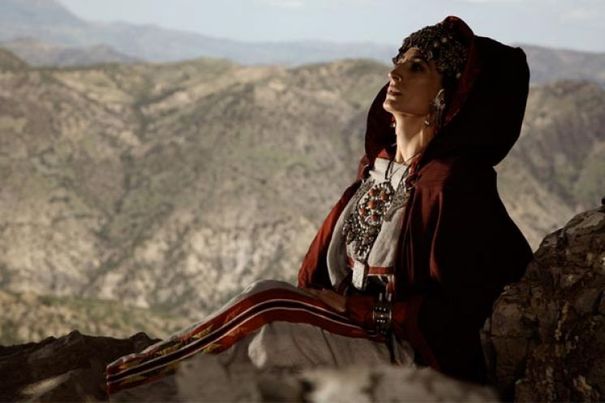REVIEW: FADHMA N’SOUMER
by Isabella Akinseye

THIS biopic of Algeria’s national hero is written and directed by Belkacem Hadjadj. It also won him FESPACO’s Silver Stallion honours for the second best film this year. He is one of six winners to have their work showcased at the 36th Durban International Film Festival (DIFF).
The film’s heroine, Fadhma N’Soumer, is popularly referred to as the Joan of Arc of Kabylia by the French. The story itself is set in 1847, a very tumultuous time for war-torn Algeria. While Fadhma’s influence is unmistakable, with her healing powers, powerful gaze and wisdom that belies her age; there is also a compassionate side that unifies the people of Kabylia. They are also united by their hostility towards the French colonial army.
The story is propelled by Hadjadj’s solid characterisations. For example, Fadhma, played by Laetitia Eido, and Sharif Boubeghla (Assaad Bouab), who helm this tale are strengthened by their different personalities, despite their shared vision.
The two are on comparable journeys; whereby both have defied societal expectations in their rise to power. Fadhma, in spurning patriarchal culture, is banished to Soumer by her husband. Meanwhile, Boubeghla, while a stranger to the people, unites the Algerian tribes against the French. Of course, these protagonists are not without their flaws either. However, their convictions to the cause offset those disparities.
In his compelling style of storytelling, Hadjadj explores the folklore around Fadhma by using an elderly poet to narrate and sing in certain parts. This departure into fantasy is told through very quite poignant scenes. Her fame is documented by her acts of humanity like when she heals a man who has been the village pariah thanks to his contagious skin condition. Pretty soon word of mouth spreads on her and it triggers this wave of idolisation.
Cinematically speaking, the rugged mountainous terrain complements the bleak state of affairs of the people when the French impose food restrictions that lead to famine. At the same time, it also attests to their fortitude where they refuse to be broken by this war tactic. This is where the message of honour and patriotism filters through strongest.
What’s also interesting to note in the film is how the adoption of the French language highlights the rift caused by imperialism. While some people conform, Fadhma remains true to her native tongue to the very end, even in her interaction with the French General. It’s her ultimate act of defiance.
The director’s treatment of Boubeghla story is almost biblical in a way. He cheats death so many times…only to be betrayed of one of his own. He is rather dextrous with Fadhma’s narrative too. He explores her rejection and embrace by society with impressive mastery.
Fadhma N’Soumer gives emphasis to the gallantry and patriotism of the Kabylia tribe in the face of constant defeat. Set in the 19th century, the heroine resonates with today’s audience. In defying tyrannical behaviour, she makes history with her acts of selflessness and true leadership, where the French tried to break her – but she never bent to their wills.

